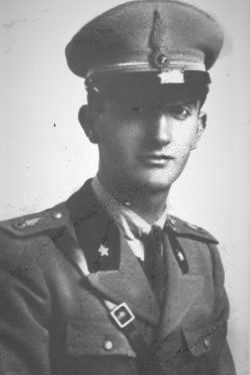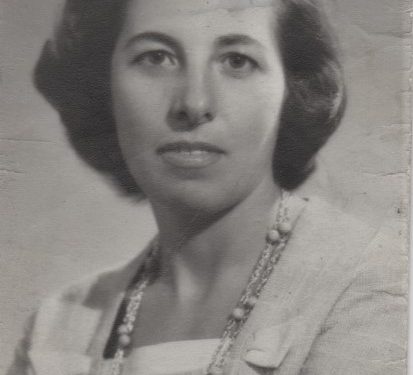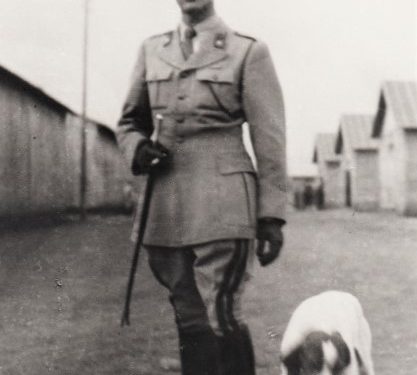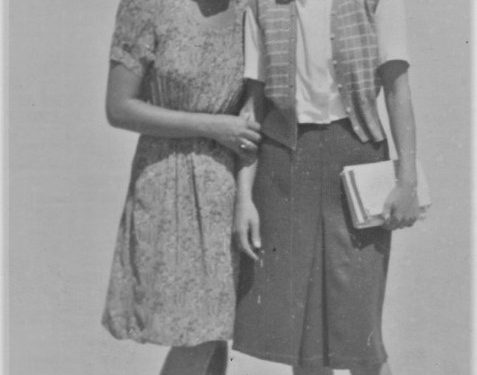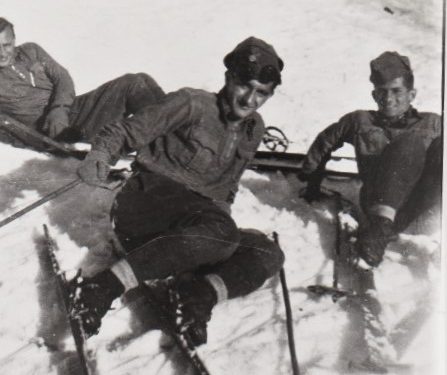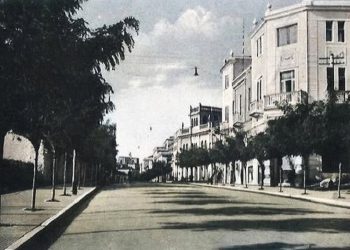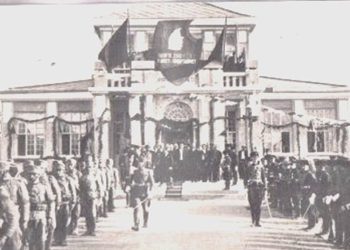By Lek Pervizi
Part Four
THE ODYSSEY OF INNOCENCE
To my brother Valentin, who faced
47 years of the ideological storms of
communism, moreover, separated
from his wife, a true Odyssey
in the middle of the twentieth century.
Memorie.al / When you enter Skuraj and cross the Urdhaza stream, the mountain ascent begins, through the hill called of Lekbibaj. You pass three mills in a row, known as those of Gjin Pjetri, which are built one after the other. You also pass the two-story tower of Ndrec Pjetri, Gjin’s younger brother, and then, you encounter a rocky outcrop on which a complex of three stone buildings is built, the historic towers known as the towers of Gjin Pjetër Pervizi of Skuraj, the leader of the Kurbin uprising. These buildings dominate the entire valley, which is formed by the union of the Mat and Fan rivers (a branch of the Mat), up to Milot. Almost a fortress, which protects and defends the area from the expeditions of foreign invading armies, which could penetrate from that gorge, until they hit the wall of the Skuraj Mountains, where the towers we mentioned were built.
The Capitulation of Italy and its Consequences
Now, after what we have said, it’s Valentin’s turn, the main character of this story. Valentin’s adventure begins when he was in Italy, where he spent his youth studying and finishing high school in Turin, the Military School in Rome, and the Modena Academy, in the Cavalry branch. As we recounted, there he met the girl from Bologna, Gori, to whom he was engaged. During his stay in Bologna, he initially performed a duty near the command of the “Lancieri Vittorio Emanuele II” regiment. In May 1942, he was promoted to lieutenant and assigned to a duty in Merano, a small tourist city on the border with Austria.
During his stay in Merano, he was separated from Gori for a few months, but he couldn’t stand it without finding an opportunity to go to her. However, other events would happen, where his military service would occasionally interrupt the contacts of the two young people, who could not bear to be a moment without each other, let alone for weeks, months, and years. Meanwhile, fate was orchestrating more sinister plans for them, which they could not have imagined. After a few months of training and maneuvers in the desert area of Pordenone, the regiment with all its vehicles was loaded onto a special train at the Pordenone station, heading for Rome. In fact, the regiment was assigned to the Libyan front, to counter the advance of the Allied forces that had landed in Morocco and Algeria.
Mussolini’s balloon about the great military power had deflated. The Italian army was suffering one defeat after another, and not even the help of Hitler, who sent German troops to North Africa under the command of the distinguished Field Marshal Rommel, was of any use. The Allied landing in Sicily had changed the plans and the regiment would be stationed in the suburbs of Rome. On the night when Mussolini was overthrown on July 25, the regiment had passed through the Rimini station, from where it would depart in the morning. Valentin had not had the opportunity to deviate to Bologna, just to say goodbye to his fiancée. Early the next morning, the train departed.
Along the way, the people from Rimini to Rome were giving the regiment a triumphant welcome and send-off. The train driver had deliberately slowed down the train. The joy of the people for the overthrow of the Duce was indescribable, as if they were celebrating the end of the war. They gave the soldiers all the good things of God, besides flowers, salamis, prosciutto, cheeses, fruits, etc., all things that were not found on the market. The people were giving such a welcome to the regiment, as representatives of the Army, which, according to them, was the main factor in the overthrow of the Duce and, as a result, the overthrow of the fascist regime.
In short, the great enthusiasm and unbridled joy that had seized the citizens gave the impression that for Italy, the war was over. Unfortunately, the real war was just beginning, that war that Italy had not yet known or experienced. Until then, the war had been fought far from the national territory, now Italy would understand that the war would be fought inch by inch on its territory and would be much heavier and more terrible than was thought and imagined.
In June 1943, the armored division “Ariete” under the command of General Carbone, where Valentin’s regiment was located, was assigned to the Rome area, on the side of Tivoli, with the special task of defending Rome. From whom…?! No one knew what to say, where the danger was coming from, from the Allies or from the Germans?! His regiment was assigned to the suburbs of Tivoli, precisely at the most strategic points to the east and north-east of Rome. The first group of three tank squadrons was assigned to the Montorsi area, a small village. The first squadron had orders to support the first platoon, under Valentin’s command, in any case of need.
Valentino’s platoon was assigned to the most advanced point, therefore the most important and dangerous in the entire alignment of the Division. He had the very delicate task of immediately notifying the command by means of a motorcyclist he had at his disposal, with all the necessary military information. To carry out that task, he had orders to stop every military vehicle and every convoy, sending the motorcyclist immediately with the appropriate information: the exact number of vehicles, if possible also of the personnel, the tonnage and the cargo of the vehicles, where they came from and where they were going.
The Battle of Tivoli, September 8, 1943
Valentin had to personally stop every military vehicle at the road intersection, so not only German, but also Italian ones. Of course, he had to behave very carefully with the different commanders of the columns, and to take the necessary information with great care. The stopped columns and vehicles could only pass when the motorcyclist returned with the relevant order to pass. In those conditions, he arranged the platoon he commanded well. He gave orders for the cannon of one tank to be aimed right at the roadblock where the vehicles were stopped.
In case of a danger or an assault, the tank crew would blow up the first enemy vehicle, which was the car of the convoy commander. The situation was tense. It was thought that the Italian High Command had the goal of defending Rome from an unspecified enemy, but that the general opinion had figured out: from the Germans! Unbelievable! In fact, rumors had spread that Italy was lining up with the Allies. Such a turn, or rather, that “treason” that was being committed against the Germans, would cost the Italian people dearly.
Let’s go back to Montorsi, there at the intersection and roadblock, where Valentin was assigned, where the first danger of an enemy attack could appear. This special task was assigned to him by the commander of the Armored Regiment himself, Colonel Guido Raby. The Colonel had been a school friend of Valentin’s father. When his two superiors, Lieutenant Colonel Amici Grossi, the group commander, and Captain Bocci, the squadron commander, appeared at the Regiment commander’s office to assign the tasks, the colonel had said from the beginning that; “at the intersection,” at the most delicate point, Lieutenant Pervizi would be assigned, expressing complete trust in him.
Several months earlier, there had been disagreements with Valentin’s two superiors, due to a breach of discipline on his part, and they had sentenced him to a few days of house arrest, when he was in Bologna, because of a girl, where, as we recounted, that girl was his fiancée. Valentin reconciled with his superiors, establishing good relations with them. He had told them that the girl was his fiancée. The officers were upset, why hadn’t he told them? Albanian head!
Meanwhile, as we said, it was hypothesized what side Italy would take in a possible conflict, against whom?! Against the Allies or against the Germans?! In that dangerous task, he had the opportunity to stop German military vehicles four times and Italian vehicles of the fascist forces five or six times. Every time he stopped the German vehicles, raising his hand, the German officers would get nervous and express great dissatisfaction with the delays and obstacles they were being subjected to. On one occasion, a German commander had shouted: “What is this?! Over there in Sicily, they are fighting and dying…!”
On the evening of September 6, his commander, Captain Bocci, informed Valentin to get ready for the next day. As soon as the day dawned, they would leave for another position. There, a friend of Valentin’s, an Italian, also a lieutenant and platoon commander, was assigned, who followed his example, placed the tanks in the same position and gave the same orders to his subordinates. He was from a noble family of counts from Naples and a school friend of Valentin’s. They started out at dawn at 50 km per hour on the highway, for where? Not even the captain knew. Along the way, the captain communicated by radio with the other officers. Valentin understood the direction, because he knew those places. They were going towards Lake Bracciano, where they were stationed outside the small town, with the same name.
On the morning of September 8, 1943, the courier sent urgently by Lieutenant Colonel Grossi arrived with the surprising news of the announcement before the world of Italy’s capitulation, by Marshal Badoglio. There was also the order for Captain Bocci to leave immediately and be stationed in Montorsi, where an armored German column was heading, because the fighting had started and several tanks of the second squadron had been destroyed. It was said there that they should be stationed on the back of the Montorsi hills, to support the other two squadrons in the fighting from the left flank. As soon as they arrived there, the captain placed the three platoons in favorable positions. The second squadron had suffered heavy damage. Two or three tanks had been blown up. There were dead and wounded. What had happened during their absence?!
How can you say that fate doesn’t play a role in people’s lives?! This change of places and duties would be fatal for the Italian who replaced Valentin in that position. The next morning, an armored German column appeared in front of the roadblock. The guard officer, who replaced Valentin, stepped in front of the German commander’s car and informed him that he had orders from his command not to let him pass. Instantly, the German commander took out his revolver and killed the Italian officer. The latter’s tank unit immediately intervened and blew up the German car, along with the officers.
Then a German truck loaded with dynamite was launched towards the roadblock, destroying it, and that’s where the battle that was called; The Battle of Tivoli, began. The Italian tank platoon that fired was wiped out there. Thus, the battle was ignited between the two opposing forces, which until a day before, were allies. The German armored division unfolded and attacked from all sides, while the Italian side had taken up defensive positions. The strategy of the Italian command was successful and the regiment was able to face the first powerful attack of the Germans. But this could not last long.
The Germans had “Panther” tanks, which could only be hit in the tracks, because the shells of the Italian tank cannons could not pierce their steel plating. This is what was done, and Valentin’s platoon was able to block several German tanks by their tracks. But the Germans launched specialized anti-tank troops into the attack. They would come up from behind the vehicles and place several plates of dynamite on the sides of the tank, which would open a hole where the Germans would throw hand grenades, with destructive consequences.
Valentino had spotted them from a distance and had given orders to fire on them without stopping. Thus, the Germans hid in a dry canal, and no longer raised their heads from there. In this way, the attack of the enemies was faced on that flank. This caused the Regiment Commander to issue a communique by radio, where the action of Captain Bocci and Lieutenant Valentin Pervizi was praised, who had managed to block the Germans on their flank, without suffering damage themselves.
The Second Capitulation
Suddenly, the capitulation or what was called; “The second armistice of Italy” occurred. By radio, the order was given that the fighting should be stopped immediately and all the squadrons should gather in the field of Tivoli, where the entire regiment would be lined up, not only with the tanks, but with all the other vehicles. Everyone was surprised. What did this mean…?! The conclusion: According to an agreement between the Italian and German authorities, the armored regiment “Lancieri Vittorio Emanuele II”, in its entirety, had to surrender, with the honor of the arms!
In that extraordinary gathering, it was communicated that the non-commissioned officers and soldiers were free to return to their homes, while the officers would be held under guard until another order came from the German High Command. Before the non-commissioned officers and soldiers left, each officer gathered his unit to say goodbye to those young men who had served under their command. They were extremely touching moments. Valentin, too, parted from those good boys, with tears in his eyes, hugging them, one by one. After an hour, the field was empty.
On this occasion, the Regiment Command handed each officer a document (a piece of paper), where for Valentin, it was written: “Lieutenant Valentin Pervizi, has remained in the aforementioned regiment and has fully carried out his duty, until the moment when the commander gave him a clear order to consider himself free.”
As the entire regiment dispersed, the Germans placed the officers in a temporary camp, surrounded by a barbed wire fence, in Frascati, a vineyard area, without giving them food. The prisoners, prisoners of war, fed only on grapes. Meanwhile, it was learned that the Germans would send the officers who did not agree to serve in Mussolini’s fascist forces, which had created the Republic of Salo, near Lake Garda, to the camps in Germany. Valentin tells that none of the officers had accepted such a proposal.
The situation was critical; they could be taken at any moment, to be sent to the Dachau camp, which was being talked about. Valentin, with two Italians, sons of counts, decided to flee and managed to escape when deep night fell, through a sewage canal that passed near the enclosure. It took four hours for them to cross those twenty meters of canal, on their stomachs, crawling on the mud like snails, so as not to cause any kind of noise. The guards were patrolling up and down along the enclosure, right on the edge of the canal. Finally, they crossed the danger zone and ran towards Rome, where they entered at dawn. The passers-by were surprised to see these muddy officers, who were running in the middle of the city, gesturing to them to be quiet with a finger to their lips.
They reached the apartment of one of them, where they were sheltered for a few days in Rome. The two friends proposed to Valentin to go with them to Naples, where they had their families and properties, but he refused, because he had his fiancée in Bologna. Later, he would remember that he had made a mistake. Because, by going with his friends, he would have secured himself first. Then, with the Allied troops, he would have reached Bologna, where he would have joined his fiancée. And his fate would have been completely different. But as we have emphasized several times, his decisions were predetermined by that mysterious force, which was fate. He parted from his friends and set off for Bologna, on a dangerous journey, hiding in freight wagons.
In Rome, his two friends had given him a “Beretta” revolver. If he was caught with a weapon and as a deserter, he would face execution by firing squad. When he got off the train and mingled with the other passengers, he learned that Bologna had been subjected to a heavy bombardment, which had caused thousands of victims. This tragedy had happened because, when the American bombers, which were called “flying fortresses”, approached, the alarm sirens had not gone off, because the military personnel who controlled the “Radars” had abandoned their service. In short, after September 8 in Italy, a great insecurity and disorder had been created.
At least those who served at the Radars should not have left. This caused the population not to take shelter in the basements, and since it was also a Saturday when the market was held, people had gone out to get groceries. The streets and squares were filled with people, and those who had been sheltered in the surrounding villages had also come. Thus, the bombing had wreaked havoc. Certainly, Bologna had not known a more terrible day during the war. The station had also suffered heavy damage. Several wagons with ammunition had been blown up. A war for a reason.
The train had stopped a little outside the city, so when the passengers started to enter Bologna, they found themselves in front of horrifying scenes, with human corpses everywhere, and great ruins. Entire blocks of buildings had collapsed. A great tragedy. Valentin had not found anyone at home, because his fiancée’s family had gone to the village, for more safety. But the caretaker who knew him, had given him the key to the apartment, where he was able to rest for a while, after a very tiring and sad day.
The next day he went out into the city towards the station, where Gori appeared in front of him, who jumped into his arms, crying with joy. Valentin’s arrival in that situation was a great support for her. Gori was happy when she saw that their house was still standing. The next day they went to the village, where they stayed for a few days with Gori’s family. But then, they decided to return to the city again. Memorie.al




